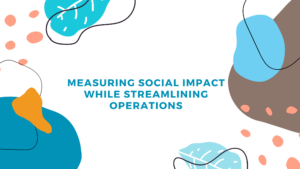
Measuring Social Impact While Streamlining Operations
Schedule a Demo View Interactive Tour A Deep Dive into How Brands and Foundations Can Power Purpose-Driven, Data-Backed Scholarship and Grant Programs
Reviewing scholarship applications is essential to the success of running an online scholarship program. As a scholarship program manager, it’s important to think about the experience and process for non administrators such as the applicants and the review committees.
When it comes to creating a review or evaluation process, it’s important to focus on developing a review workflow that fairly and accurately defines who the scholarship recipients are – but also in a way that is user friendly and engaging for the committee. Here is a sneak peak at how Reviewr powers this process.

Schedule a Demo View Interactive Tour A Deep Dive into How Brands and Foundations Can Power Purpose-Driven, Data-Backed Scholarship and Grant Programs

Schedule a Demo View Interactive Tour Insights from 500 scholarship provider interviews Bridging the Gap Between Mission and Execution Scholarship programs
